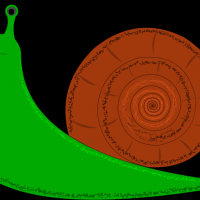Príspevky: 13
Jazyk: English
sindyr (Zobraziť profil) 10. marca 2013 20:30:56
What is the difference between the following:
Eta knabino
knabineto
knabetino
If I were to guess:
Eta knabino = small girl
knabineto = small girl
knabetino = ???
Also, while we are talking about it, what is the difference between:
Eta knabo
-and-
Malgranda knabo
?
Thanks.
hebda999 (Zobraziť profil) 10. marca 2013 22:54:42
sindyr:...Where did you find this? You put -et- at the end of the word.
????knabetino???
sindyr (Zobraziť profil) 10. marca 2013 23:03:26
Where can I find the rules governing in what order affixes must combine to create new words?
Also, I am looking for answers to the 3 other questions in the original post.
Thanks again!

sudanglo (Zobraziť profil) 10. marca 2013 23:21:24
You put -et- at the end of the word.Not always, for example, ridetanto would be a smiling person.
The -et qualifies what is to the left.
But et at the begining of a word behaves differently
brodicius (Zobraziť profil) 10. marca 2013 23:25:29
And I generally interpret 'eta' to be something like 'tiny' and 'malgranda' to be 'small'.
sindyr (Zobraziť profil) 10. marca 2013 23:52:18
brodicius:As far as I'm aware, 'knabineto' and 'knabetino' have the same meaning.I was hoping that this would be the case, it seems logical. IE, a child who is female and small vs a child who is small and female.
And I generally interpret 'eta' to be something like 'tiny' and 'malgranda' to be 'small'.I like this thought. So then perhaps eta = malgrandega? And maleta = grandega?
sindyr (Zobraziť profil) 10. marca 2013 23:57:03
sudanglo:So then a knabineto = a small, female child and a knabetino = a female, small child - in this particular case it would seem the order doesn't matter. Obviously however, there are other cases where it would. like you said, a ridetanto = a smiler, but a ridanteto might be a smallish laughing person, perhaps (or maybe someone who laughs a short laugh) - you seem to be suggesting that ridanteto could NOT mean a person who smiles, probably because we already know the actual word for smile is rideto.You put -et- at the end of the word.Not always, for example, ridetanto would be a smiling person.
The -et qualifies what is to the left.
Yes? (Ĉu jes?)
RiotNrrd (Zobraziť profil) 11. marca 2013 0:18:35
sindyr:So then a knabineto = a small, female child and a knabetino = a female, small child - in this particular case it would seem the order doesn't matter.There is a tiny, tiny, smidgen of difference in emphasis between the two, even in their English translations. In most cases, that difference is too small to matter. But I can imagine some contexts where you are trying to be as absolutely precise as possible, one in which the qualities of smallness vs femaleness are somehow being juxtaposed, in which you might choose one in preference to the other.
I also imagine those contexts don't really come up all that often. Hair-splitting edge cases, of the sort that lawyers like to argue about.
For general day-to-day use, either choice works, and for the most part will be interpreted identically.
RiotNrrd (Zobraziť profil) 11. marca 2013 0:35:56
arbo - tree
arbaro - forest
arbareto - small forest, or a grove, etc. This isn't an uncommon word, as these things appear all over the place.
But, switch the suffixes around, and you get:
arbetaro - a forest of tiny trees (bonsai's as far as the eye can see, for example.) This one is a lot rarer, for obvious reasons. Although... there are such things - maybe not with bonsai's, but with larger-yet-small trees - so the word probably has gotten some use. Newly planted forests replacing a clear-cut, maybe, which are still all just three feet tall. Something like that, perhaps.
As sudanglo said, suffixes modify what's to their left. Sometimes it doesn't make much difference. Sometimes it completely changes the meaning of the word.
sindyr (Zobraziť profil) 11. marca 2013 0:37:49
By the way, what about the idea that eta = malgrandega? And maleta = grandega?
Is that correct?


